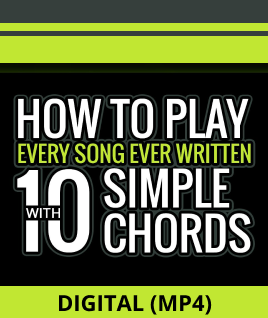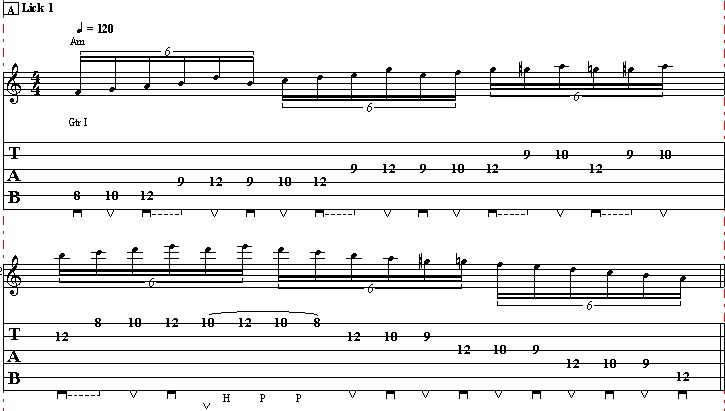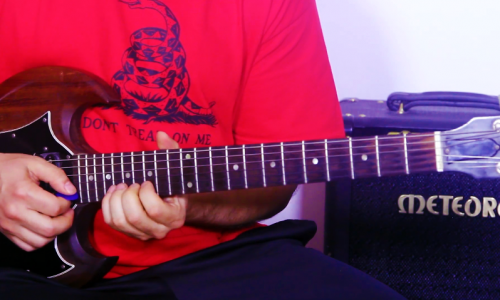Do you have dreams of becoming the next Jimmy Page or Zakk Wylde, or are you simply interested in learning to play the guitar so you can entertain your friends and family at the next big gathering? Either way, you don’t need any special skills to start with to begin learning how to play a guitar. All it takes is a desire to learn and the patience to devote some time to getting familiar with the instrument and how it works.
There are a variety of ways you can go about your newfound passion for learning to play the guitar. You can work on your own if that’s what suits you, using books, videos, and your own ear as your guide, or you can find a guitar teacher who can walk you through the process of learning to play. The path you choose really depends on you and knowing what approach is going to benefit you most.
Here´s a cool online guitar lesson that you could enjoy, especially if you are just starting out:
I don’t want to mislead you into thinking it’s easy to learn to play the guitar. While you don’t need any special skills to begin with, you are going to need a strong desire to play and the patience to stick with it while you fumble through those initial learning hurdles. Nothing worth accomplishing comes easy, so be prepared to put in the time it will take to develop your playing abilities.
The best way to learn to play guitar is to find the structured system that works for you, then start at the beginning and adjust your curriculum as your skills progress. There isn’t a universal approach, but a general rule of thumb is to start by learning the instrument itself. Get familiar with the names of the parts of your guitar, learn the names of the strings and try to familiarize yourself with the notes of each fret. Any good book on fret theory will show you patterns that can make what seems a daunting task—learning notes on the neck of the guitar—more manageable.
Getting familiar with scales and chord shapes is the next step you might want to take when learning to play guitar. Playing scales not only exercises your fingers and helps develop your speed and fluidity, it’s a good way to really get the location of notes on the guitar into your head. Chords, on the other hand, form the harmonic foundation of a song. There’s no such thing as knowing too many chords, so learning as many as you can, beginning with basic major, minor, sus, and seventh chords, is always helpful. It’s a good idea to keep a chord book on hand and commit to learning a couple of new chords a week. Better yet, learn how to build chords from a scale and you will always be able to come up with a necessary chord at any given moment.
Watch this cool lesson on scales:
A lot of this is theory, though, and theory is no good if you can’t apply it to playing. Don’t neglect working on the techniques that bring life to the notes you play. String bending, double stops, pick slides, and other techniques are crucial for adding color to your playing. Practice these techniques while you practice your scales and you’ll begin to develop a playing style. You don’t simply want to play scales in scale order back and forth. Mix it up a little and play random notes from the scale while applying the techniques that’ll add flavor to your playing.
Remember that our really juicy guitar lessons are in our courses in DVD, please check some of our




